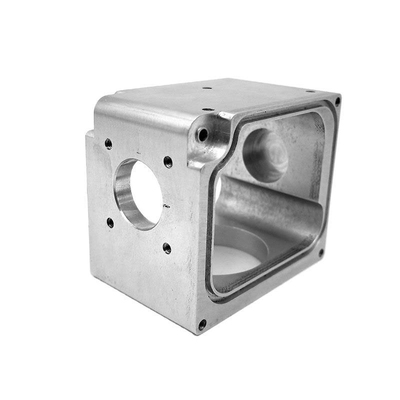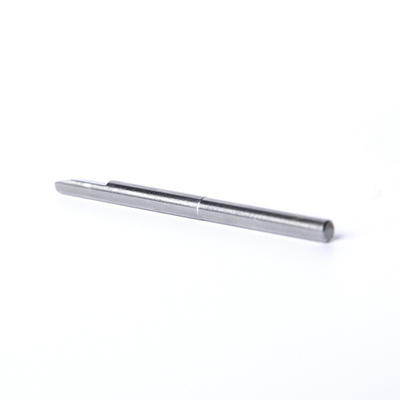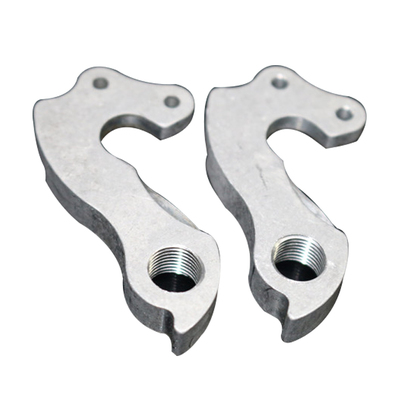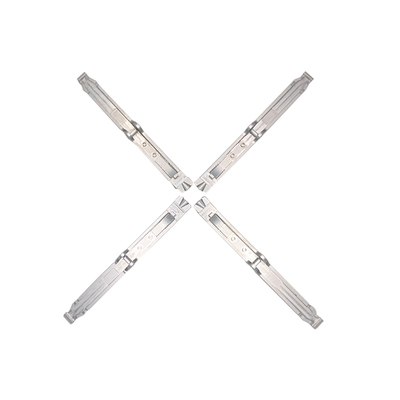A new method of repairing metal self-healing at room temperature
According to foreign media reports, for 6000 years, humans have been using metal to make things, because metal is strong and tough and requires a lot of energy to be destroyed. But at the same time, once the metal is damaged, it will require a lot of energy to be repaired. Usually, the process of repairing metal involves using a welding torch to melt the metal at a temperature of 6,300 degrees Fahrenheit (about 3,135.56 degrees Celsius).

But now, engineers at the University of Pennsylvania in the United States have developed a method of repairing metal at room temperature, called the "healing" method, because it is similar to the way bones heals, requiring raw materials from external sources. And energy. The research was carried out by James Pikul, an assistant professor of learning in Mechanical Engineering and Applied Studies, in collaboration with graduate student Zakaria Hsain in his laboratory.
Except for some metal repairs that need to be melted to a more flexible form, which incurs energy costs, some metal parts cannot even use this repair strategy. For example, melting will destroy the complex internal structure of metal foam, which is a special metal material containing foam pores. This kind of metal has spaces inside, so while reducing the weight of the material, it can maintain the overall strength.
In exploring ways to repair such porous metals, Pikul and Hsain studied existing "self-healing" materials, most of which are made of relatively soft polymers and plastics. Pikul said: "Now everyone uses the "self-healing" method to inject different chemicals into the polymer. When the polymer ruptures, the chemicals will be released and mixed together like an epoxy resin to combine the materials. Glue together." This method is suitable for "healing" polymers because they can flow and are relatively easy to reshape at room temperature, but it also means that the strength of the polymer is limited.
In order to repair metal foam, researchers first need to find a way to make them "feel" where they are destroyed. Metal foam usually has better structural properties than polymers, so researchers realized that instead of encapsulating other chemicals for repair in polymers, the fracture of the polymer layer is used as a chemical signal.
The researchers used chemical vapor deposition technology to uniformly coat each support structure of the foamed nickel with a layer of parylene D, a chemically inert and elastic polymer. Since the damage tolerance of this material is slightly lower than that of nickel, when the sample is damaged, the material will break first, exposing the underlying metal. Then, researchers can use electroplating techniques to create new nickel support structures on the exposed nickel only where needed.
Electroplating is a room temperature technology with low energy consumption, and is most commonly used for plating a layer of chrome on car parts or plating a layer of gold on jewelry. For example, when a steel tire ring is placed in a liquid electrolyte tank containing chromium ions, when a voltage is applied, the ions near the steel will react to form a uniform metallic chromium coating on the steel surface.
Pikul said: "Unlike polymers, metals do not flow at room temperature. The advantage of electrochemical technology is that metal ions can easily pass through the liquid electrolyte, and electrochemical technology can convert the ions into solid metal. This kind of polymerization The object behaves like a photolithography mask, only allowing ions to become metal where the metal foam bursts."
During the experiment, the researchers "healed" three types of metal damage on centimeter-level, polymer-coated nickel foam samples: samples with cracks, samples that were pulled apart, and samples with only a few supporting structures connected, And the sample that was divided into two. And since the electroplating technology was used only on the exposed nickel, it took only 4 hours to repair the damage, and the time it took to repair the damage was independent of the size of the sample.
Although this method of "healing" at room temperature is not a true "self-healing method" because it still requires external power and raw materials, Pikul believes that this method is similar to the way human bones self-heal. As with bone self-healing, the area after the metal is repaired will be stronger than before the damage, because of the extra nickel that grows from the healing area. However, when this technique is used repeatedly, the new nickel will reduce the healing efficiency because there is no longer a polymer coating in the healing area, but the nickel continues to accumulate there.
Pikul hopes to conduct further research to increase the similarity between the technology and biological treatments. This type of metal foam can "heal" without removing the damaged part, and is very suitable for car doors, robotic arms or space station components.
Link to this article:A new method of repairing metal self-healing at room temperature
Reprint Statement: If there are no special instructions, all articles on this site are original. Please indicate the source for reprinting:https://www.cncmachiningptj.com
 PTJ® provides a full range of Custom Precision cnc machining china services.ISO 9001:2015 &AS-9100 certified.
PTJ® provides a full range of Custom Precision cnc machining china services.ISO 9001:2015 &AS-9100 certified.
Machining shop specializing in fabrication services for construction and transportation industries. Capabilities include plasma and oxy-fuel cutting, Tailored machining, MIG and Custom Aluminum Cnc Precision Milling Welding Jig Fixture, roll forming, assembly, Lathe machining stainless steel cnc machine shaft, shearing, and CNC Swiss Machining services. Materials handled include carbon and Passivation Stainless Steel Machining Cover Plate Parts.
Tell us a little about your project’s budget and expected delivery time. We will strategize with you to provide the most cost-effective services to help you reach your target,You are welcome to contact us directly ( sales@pintejin.com ) .
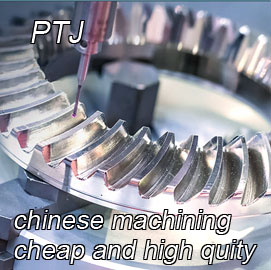
- 5 Axis Machining
- Cnc Milling
- Cnc Turning
- Machining Industries
- Machining Process
- Surface Treatment
- Metal Machining
- Plastic Machining
- Powder Metallurgy Mold
- Die Casting
- Parts Gallery
- Auto Metal Parts
- Machinery Parts
- LED Heatsink
- Building Parts
- Mobile Parts
- Medical Parts
- Electronic Parts
- Tailored Machining
- Bicycle Parts
- Aluminum Machining
- Titanium Machining
- Stainless Steel Machining
- Copper Machining
- Brass Machining
- Super Alloy Machining
- Peek Machining
- UHMW Machining
- Unilate Machining
- PA6 Machining
- PPS Machining
- Teflon Machining
- Inconel Machining
- Tool Steel Machining
- More Material

